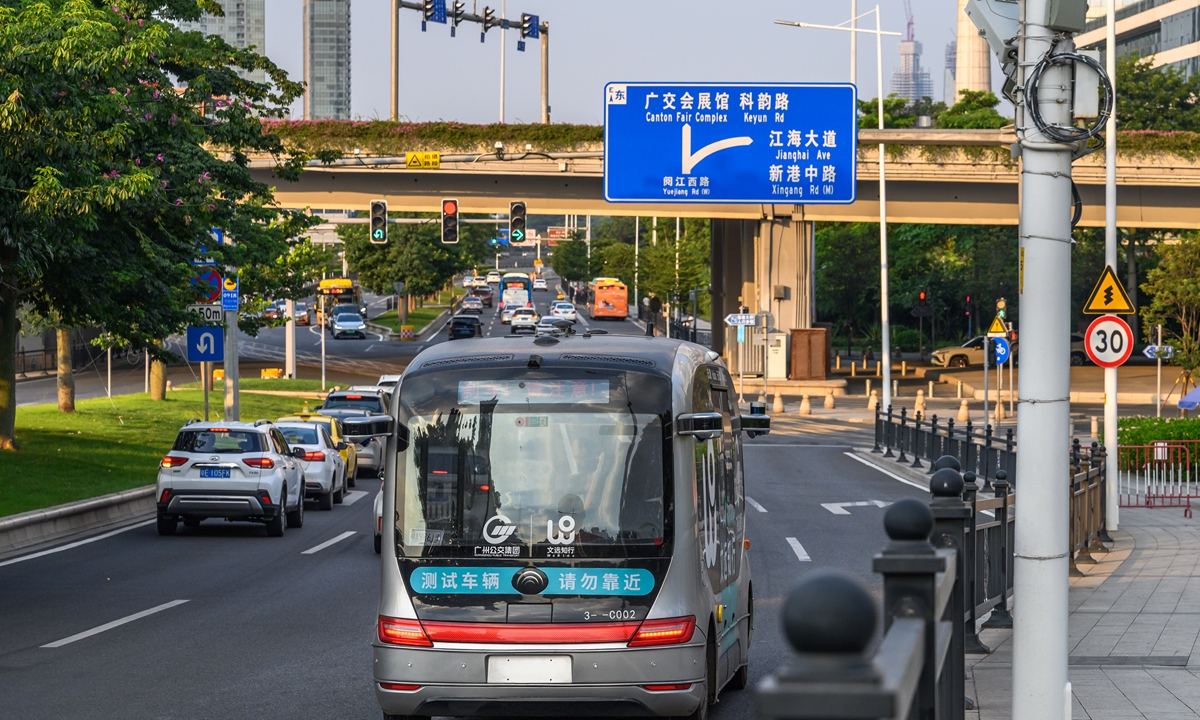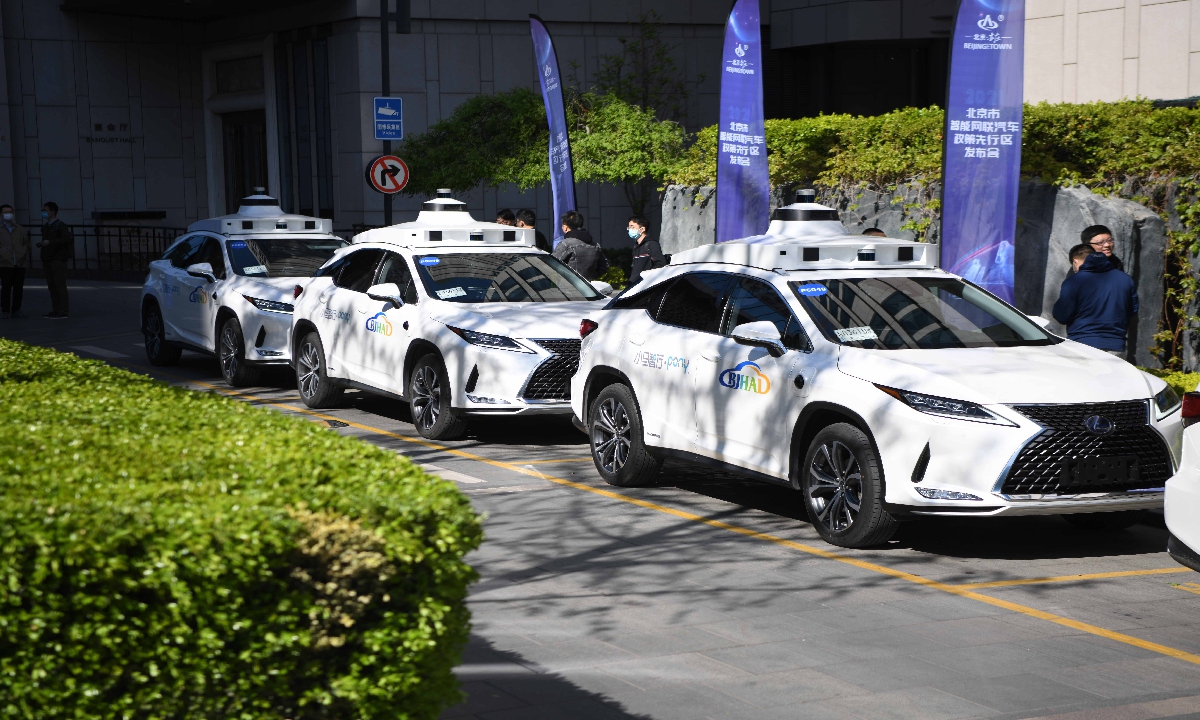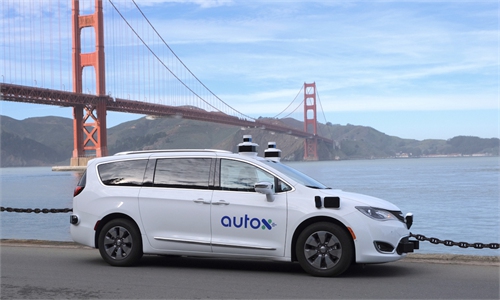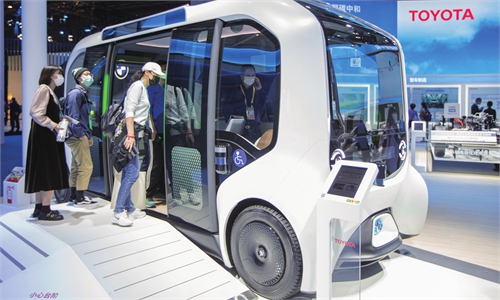
A self-driving bus is tested in the city center of Guangzhou, South China's Guangdong Province on July 26, 2022. Residents can book a free trial ride through their mobile phones. A safety supervisor will be present on each bus equipped with a red emergency brake button, full-directional laser sensors and 360-degree high-definition monitoring cameras. Photo: VCG
Several Chinese self-driving companies have announced new investments and the landing of self-driving taxi services after the nation's first regulation on smart vehicles came into effect in Shenzhen, South China's Guangdong Province on Monday, the Global Times learned.
These steps indicate that China's autonomous driving technology is now accelerating into the advanced stage as a global leader, analysts said.
On Tuesday, Chinese electric car maker Xpeng Motors announced the completion of Fuyao, China's largest autonomous driving intelligence center, in Ulanqab, North China's Inner Mongolia Autonomous Region, for autonomous driving model training, in collaboration with Alibaba.
The computing center is based on Alibaba Cloud's intelligent computing platform, with a total computing power of 600 petaFLOPS (PFLOPS), and it will increase the training speed of XPeng's self-driving core model by 170 times, the company told the Global Times on Tuesday.
A one PFLOPS computer system can perform one quadrillion floating-point operations per second.
Separately, autonomous driving technology company Pony.ai said it would reach an agreement with ride-hailing firm Cao Cao Mobility to promote the large-scale landing of self-driving taxi hailing services.
Starting on Wednesday, users in Beijing can book the Robotaxi service provided by Pony.ai through the Cao Cao app. The self-driving taxi service now covers the 60-square-kilometer area of Beijing's high-level autonomous driving demonstration zone in Yizhuang, with 250 autonomous drop-on and drop-off stations, which can meet most travel needs, Pony.ai said.

A Pony.ai self-driving fleet in Beijing Economic-Technological Development Area, Beijing on April 13, 2021. Photo: CFP
China's first regulation tailored for smart and connected vehicle management came into force on Monday, which has filled the legal gap for domestic intelligent connected vehicles and clarified the rules for liability and auto insurance coverage.
The investments by enterprises and breakthroughs in regulations indicate that China's autonomous driving technology is accelerating from Level 2 to Level 3, Zhang Xiang, a research fellow at the Research Center of Automobile Industry Innovation of the North China University of Technology, told the Global Times on Tuesday.
While Level 2 contains partial automation, such as automatic parking systems, Level 3 offers conditional autonomous driving, which means that drivers can take their hands off the steering wheel for a certain period, Zhang said.
It is expected that Level 3 technology would have wide application prospects, with great demand for autonomous taxis and trucks, which can reduce the costs of logistics and travel.
Zhang said that some self-driving car companies have been testing self-driving taxis that use Level 3 or higher technology. But the cost of autonomous vehicles still needs to be reduced to achieve mass application.
China's self-driving vehicle industry is accelerating into the fast lane as a top player in the world, experts said.
"Although the US started relatively early in chips and algorithms, China has the advantage of a larger base of start-up companies and more complete industry chains, which will help it to commercialize leading technologies more easily," Zhang said.
According to the New-Energy Vehicle Industry Development Plan (2021-35) issued by the State Council, the cabinet, highly autonomous vehicles will be commercially used in limited areas and specific scenarios by 2025.
China has designated more than 5,000 kilometers of roads for autonomous driving testing, and it has also issued more than 900 test licenses, said Guo Shougang, an official with the Ministry of Industry and Information Technology, at an internet connected vehicle forum in Beijing on Monday.



